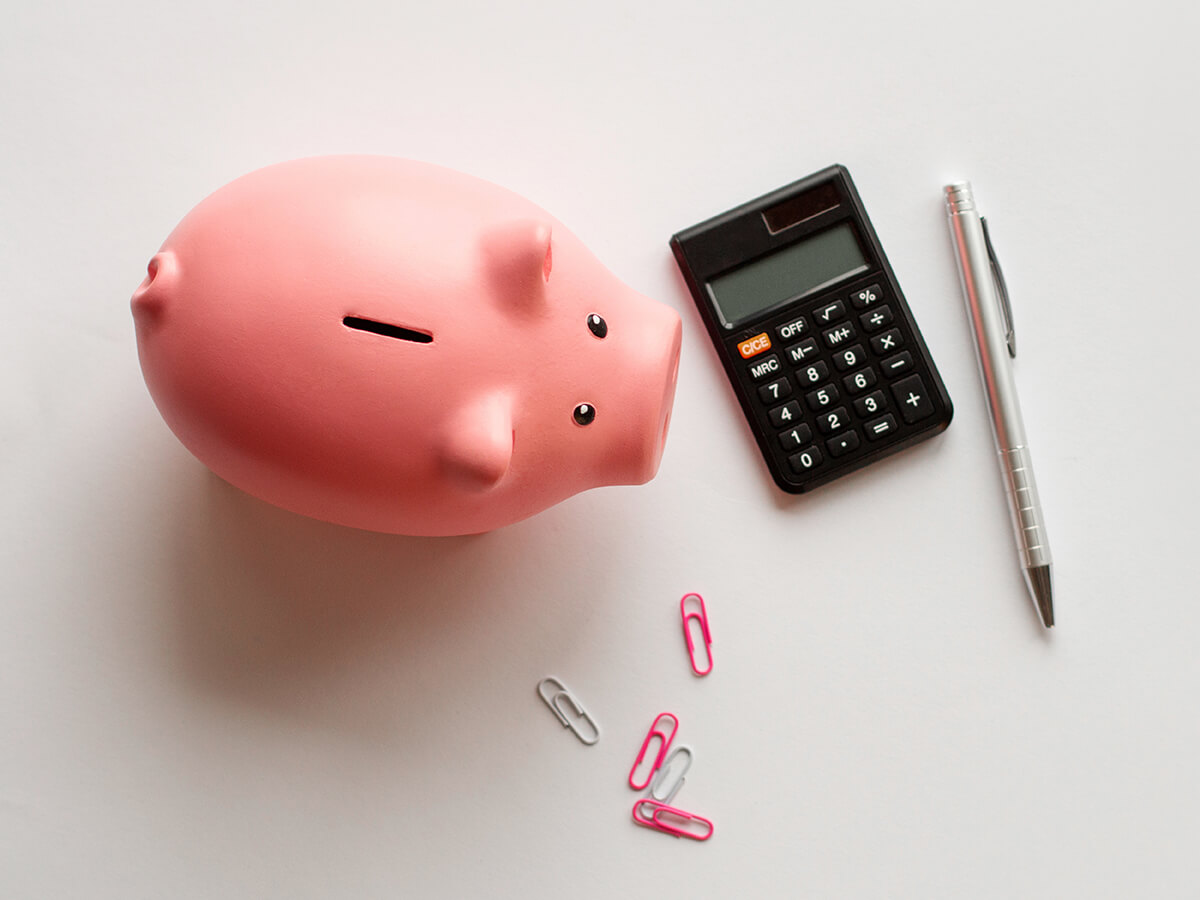Quick Summary
- A fixed deposit is a lump sum deposit for a fixed period with a guaranteed return, while a time deposit often refers to products where you can invest regularly in smaller amounts
- Both FDs and TDs are considered safe, low-risk investments, as they are not linked to market volatility
- Both offer higher returns than savings accounts, but generally don’t beat inflation
- FDs and TDs allow premature withdrawals, but with penalties
- FDs are best for those with lump sum funds; TDs suit people who prefer regular, smaller deposits.
Invest Smartly with Mahindra Finance!
When planning conservative investing, it is essential to understand the difference between time deposit and fixed deposit. Often considered synonymous, these financial products are quite different from each other. While they do not offer the high-growth potential of equities, they are designed to preserve capital and provide steady returns. Read on as we discuss each of them in detail, and also help you analyse time deposit vs fixed deposit, and what may suit you more.
What is a Time Deposit?
Simply put, a term deposit, also called a time deposit, is a deposit that is made for a specified time period. By this logic, it may be said that even a fixed deposit is a term deposit. The answer is both yes and no. Some financial institutions classify FDs as term deposits; however, some categorise products like post office deposits, recurring deposits, currency deposits, etc, under a time/ term deposit.
A time deposit is a contract between you and a financial institution. Here, a fixed amount is deposited in the account for a fixed period, typically at regular intervals, ranging between a few months and a few years. Your funds earn interest at a predeclared interest rate.
To better understand the meaning of time deposit, let us take a look at the potential benefits and drawbacks of time deposits.
Here are the advantages of time deposits:
- Generally, term/ time deposits are considered to be a safe and secure investment, making them low-risk and thus ideal for conservative investors.
- Time deposits, like recurring deposits, can offer fixed returns as there is no exposure to market volatility.
- These deposits typically have a shorter maturity, allowing you to park surplus cash or make regular deposits, even for a few months.
- While it may vary from one bank or NBFC to other, time deposits, like a recurring deposit, allow the smallest deposits for account opening.
- The investment tenure is the lock-in period. Depositing regularly, without taking it out, can inculcate the habit of disciplined savings over a period of time.
- In most cases, the interest earned is higher than that of a regular savings account. Senior citizens can enjoy a higher rate of interest.
Things to Keep in Mind When Opening a Time Deposit
While the benefits of time deposits are clear, there are a few things that you should bear in mind:
- Make sure to check the tenure for which you wish to stay invested. As discussed, term deposits can range from 6 months to 10 years.
- The rate of interest offered can vary between different institutions.
- Term deposits come with the feature of premature withdrawal. However, it usually comes with a penalty.
- The interest earned on a time deposit is taxable, as per the tax slab you fall into.
What is a Fixed Deposit?
In most Indian households, when it comes to making investments, fixed deposits are often the first preference. A fixed deposit is a financial instrument where a lump-sum amount is deposited with a financial institution for a specified tenure. During this tenure, your bank or NBFC offers you a predetermined rate of interest.
Considered to be one of the safest ways to grow your savings, fixed deposits are also quite versatile. There are different types of FDs; you can select the type you prefer the most.
Despite the availability of many modern investment options, fixed deposits remain an integral part of many financial portfolios, not just for traditional investors but even aggressive investors who wish to add an element of stability and safety to their portfolios.
To understand the difference between time deposit and fixed deposit, it is essential to look at the expected benefits and potential drawbacks of fixed deposits.
Benefits of Fixed Deposits
Here are the advantages of fixed deposits:
- Fixed deposits are a relatively safe and risk-free investment that can suit both short and long-term investments.
- Free from market fluctuations, FDs offer a fixed amount at the time of maturity.
- Compared to savings accounts, FDs offer a higher return.
- Different banks and NBFCs offer different types of FDs, such as short-term FDs, tax-saving FDs, sweep-in FDs, and senior citizen FDs, to suit the needs of different investors.
- Depending on the type of FD, you have the option to receive the returns on a monthly/quarterly, or annual basis.
- Tax savings FDs allow an exemption of up to ₹1.5 lakhs/year under Section 80C.
- Deposit Insurance and Credit Guarantee Corporation (DICGC) makes your bank FDs all the safer. Depositors can get an insurance cover of up to ₹5 lakhs.
- FDs come with a variety of tenures, ranging from a few days to 10 years.
- Senior citizens can earn a higher return on their investment.
- Some institutions also offer extra benefits such as a loan against FD, FD Credit Card, etc.
Things to Keep in Mind When Opening a Fixed Deposit
Be aware of the following disadvantages of opening a fixed deposit.
- Some investors consider the lower rate of return to be the biggest disadvantage of an FD. It barely allows you to beat the rate of inflation. However, for people looking for risk-free investments, FDs can be an ideal option.
- The deposit stays locked in for a fixed tenure. While the option of premature closing is allowed, it comes with a penalty.
- The interest earned on FDs comes under “Income from Other Sources”, and thus, is taxable.
Suggested Read: Fixed Deposit Vs Savings Account: Where Should You Invest?
Difference Between Time Deposit and Fixed Deposit
Now, let’s do a detailed time deposit vs fixed deposit analysis.
| Features | Fixed Deposit | Term Deposit |
| Pattern of Investment | A lump sum deposit is made for a fixed period of time, with a fixed rate of return. | Used for a category of deposits, typically with regular investing. |
| Rate of Interest | It varies from time to time, institution to institution. Generally higher for higher tenures. | Varies from time to time; institution to institution |
| Tenure | From a few days to up to 10 years | From a few weeks to 5 years |
| Liquidity | Moderate liquidity can be liquidated when required. Tax-Saving FDS have a fixed lock-in of 5 years. | Moderate liquidity; can be liquidated when required. |
| Premature Withdrawal | Incurs penalties for premature withdrawals. | Incurs penalties for premature withdrawals. |
| Best Suited For | Well-suited for investors looking to park their lump sum money for a longer tenure. | Investors who want to invest regularly, probably with modest deposits for the short term. |
Are Time Deposits and Fixed Deposits Safe to Invest?
When an investor chooses financial products like a fixed deposit or a term deposit, the primary aim is safety. These products are considered low risk because they are insulated from the market’s day-to-day fluctuations. Simply put, unless the issuing institution faces solvency issues, your investments are mostly safe.
Also, keep in mind that banks, as well as NBFCs, come under the regulations of the Reserve Bank of India. The RBI ensures that all financial institutions follow the guidelines. Another guarantee that you have is that DICGC offers an insurance cover of up to ₹5 lakhs on your FDs.
It should also be noted that while both term deposits and fixed deposits are trusted investment options, their reliability depends heavily on the stability of the institution offering them. A reputed name like Mahindra Finance will always inspire more confidence than an obscure financial entity offering unusually high rates.
How to Choose Between Time Deposit and Fixed Deposit?
Despite the difference between time deposit and fixed deposit, both options remain among the safest ways to grow funds without exposure to risk-heavy instruments. Choosing between the two should depend largely on your needs and preferences.
Let’s take the example of 2 friends, Sadhna and Avantika, who wish to go on a foreign holiday in a few years. While Sadhna was making an FD with her recently received annual bonus, Avantika thought of opening an RD, as she was more comfortable with regular payments. For investors seeking a safe place to park their surplus funds, a lump sum deposit in fixed deposits could be an ideal option. For those who prefer making smaller yet steady deposits, term deposits may be more suitable.
What also should be kept in mind are the rate of interest that each offers, the penalty you would have to bear when making a premature withdrawal, and the duration for which you wish to invest. Term deposits are typically well-suited for those with a shorter time horizon, while FDs are better when investing for the long.
Conclusion
Time deposits and fixed deposits both serve the same purpose: giving you a safe place to grow your money. You need to bear in mind that while both term and fixed deposits come with their own set of pros and cons, you need to pick the one that best suits your needs. Weighing the pros and cons of each is necessary.
Both allow capital preservation with secured returns and can work best when used as an investment ladder. Make sure to analyse your priorities and pick the one that fits comfortably within your personal financial plan.
Mahindra Finance fixed deposits are awarded the status of “IND AAA/Stable” by India Ratings. The company also received “CRISIL AAA/Stable” from CRISIL Ratings, which indicates high safety for all its customers. With high interest rates, easy online application, and competitive interest rates, Mahindra Finance fixed deposits offer a great way to safeguard your future.
Suggested Read: FD vs RD: Which One Should You Choose?
FAQs on Time Deposit and Fixed Deposit
What is the typical interest rate difference between time and fixed deposits?
While the difference may not be very large, typically fixed deposits are known to offer a higher rate of interest. But keep in mind that the interest rate can vary from time to time and institution to institution
Can I withdraw my money early from a time deposit or fixed deposit?
Yes, almost all financial institutions allow premature withdrawals. However, they may levy additional charges in the form of a penalty.
How do market fluctuations affect time deposits and fixed deposits?
In most cases, both time deposits and fixed deposits are not market-influenced. Despite market movements, your return is fixed and does not change with market volatility.
What is the minimum investment amount required for each?
The minimum amount required to open time deposits and fixed deposits depends on the chosen institution. It is recommended that you confirm the same with your bank/ NBFC.
























































